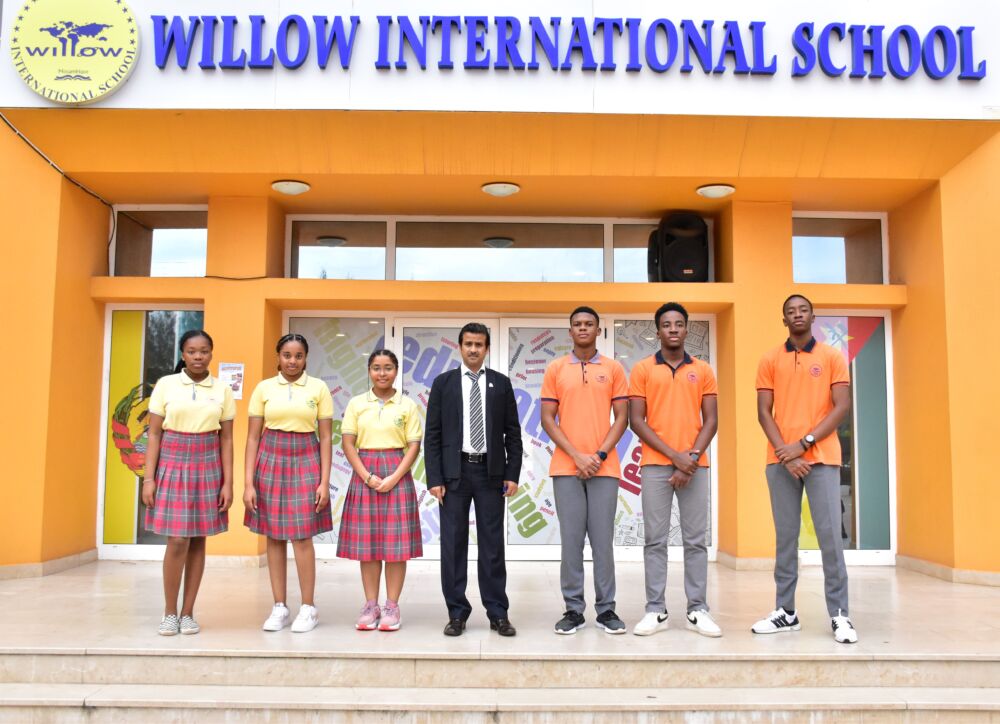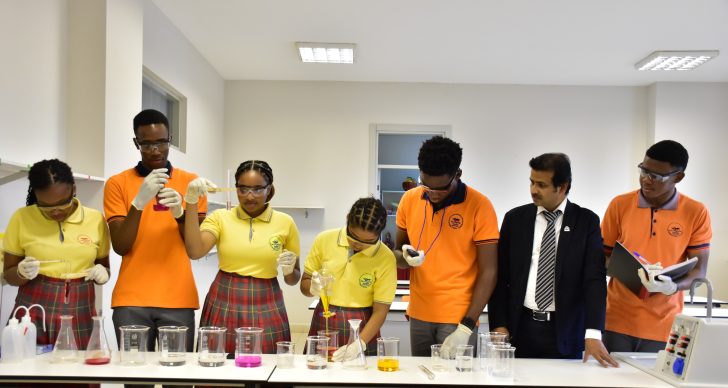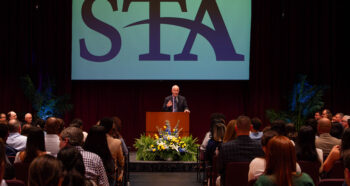Six Cambridge IGCSE students from Willow International School in Mozambique used the Cambridge Upper Secondary Science Competition to improve their knowledge of water pollution, a topic of great relevance to their lives. Here, the aspiring scientists tell us more about the project. They also share their excitement about winning the Best in Region award for Sub-Saharan Africa.
Why choose water pollution?
Our objective was to create and expand a relevant environmental project that could impact the lives of millions of people. We researched some lesser-known problems but we decided to cover water pollutants and filtrations because water pollution affects a large demographic, including Mozambique.
Water is the world’s most used and consumed resource. We wanted to spread awareness of water pollutants and develop a realistic solution that could be recreated on a large scale in various countries, including countries outside Africa.
We decided to concentrate our research on Methylene Blue [an organic dye released as an effluent after various types of industrial activity]. We looked at its consequences and reactions in terms of long-term effects on the body.
What did your science project involve?
The Cambridge Upper Secondary Science Competition required us to investigate a topic through practical work, using scientific method.
Over nine months, we worked hard to achieve our objective and deliver an accessible, reliable result.
The project was divided into four sections: research, methodology, data analysis and comparison, and presentation of content.
Existing papers, clinical reports and experiments performed by our team were used to collect data on the most suitable biomaterial capable of filtrating Methylene Blue that is widely available in regions associated with poor or scarce water filtration systems.
It needed to be found naturally, since biomaterials are more effective in the removal of inorganic, organic and microbial contaminants when compared to conventional filtration systems.
How important was the project for you and your school?
We are extremely happy to know that we won the competition. It was an amazing and challenging experience.
Teachers gave our investigation a Gold award, making it eligible for submission to Cambridge International so their expert judges could consider it for a Best in Country or Best in Region award. This resulted in us winning the regional award for Sub-Saharan Africa. At the end of the year, all winners will be put forward to be judged for the Best in World award.
Our school’s Vice Principal Dr. M. A. Hussain would like to thank Cambridge International for providing such quality education worldwide and giving opportunities to learners to grow in a way where each one can shine.

What were the main challenges?
As we conclude this phase, it is crucial for us to reflect on our journey and assess our strengths as well as areas for improvement and to identify opportunities for growth.
Our challenges mostly related to the accuracy and reliability of the experiments and articles researched. We gathered evidence from multiple sources and repeated the procedures to reduce this factor.
Time management regarding preparation of the experiments and collection of material and data was the most difficult challenge, so each member was responsible for a sub section of the project, as seen in our video submission, and they reported weekly to the group.
What did you learn from the project?
The competition gave us not only a platform to present our ideas, but also an opportunity to better develop coordination and communication skills, and improve our reporting and analytical abilities, which were present in both the final report and the execution of the presentation.
We have each learned about the environmental problems and concerns in all areas of pollution, and more advantageous solutions for each demographic.
Through the project we also fortified our relations and skills we can use in future projects. This opportunity from Cambridge International has also helped grow our experience in environmental science and in creating a meaningful impact in our community and potentially in many others.
The Cambridge Upper Secondary Science Competition is open to teams of three to six learners Cambridge IGCSE and O Level students. It gives learners the chance to build their passion for science and develop practical skills that complement their academic studies. There are two entry periods: teams must complete their investigations by the end of April or the end of October.





